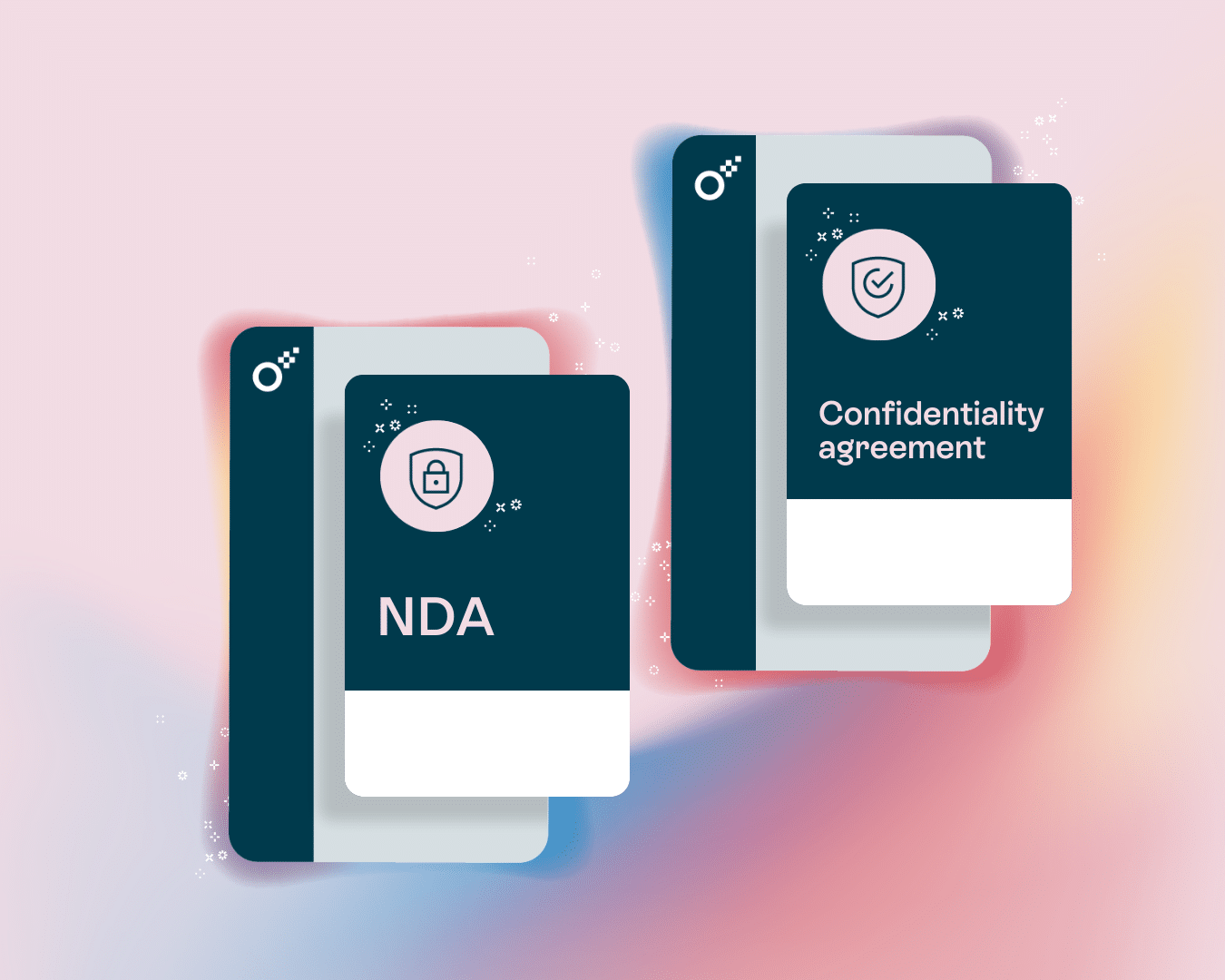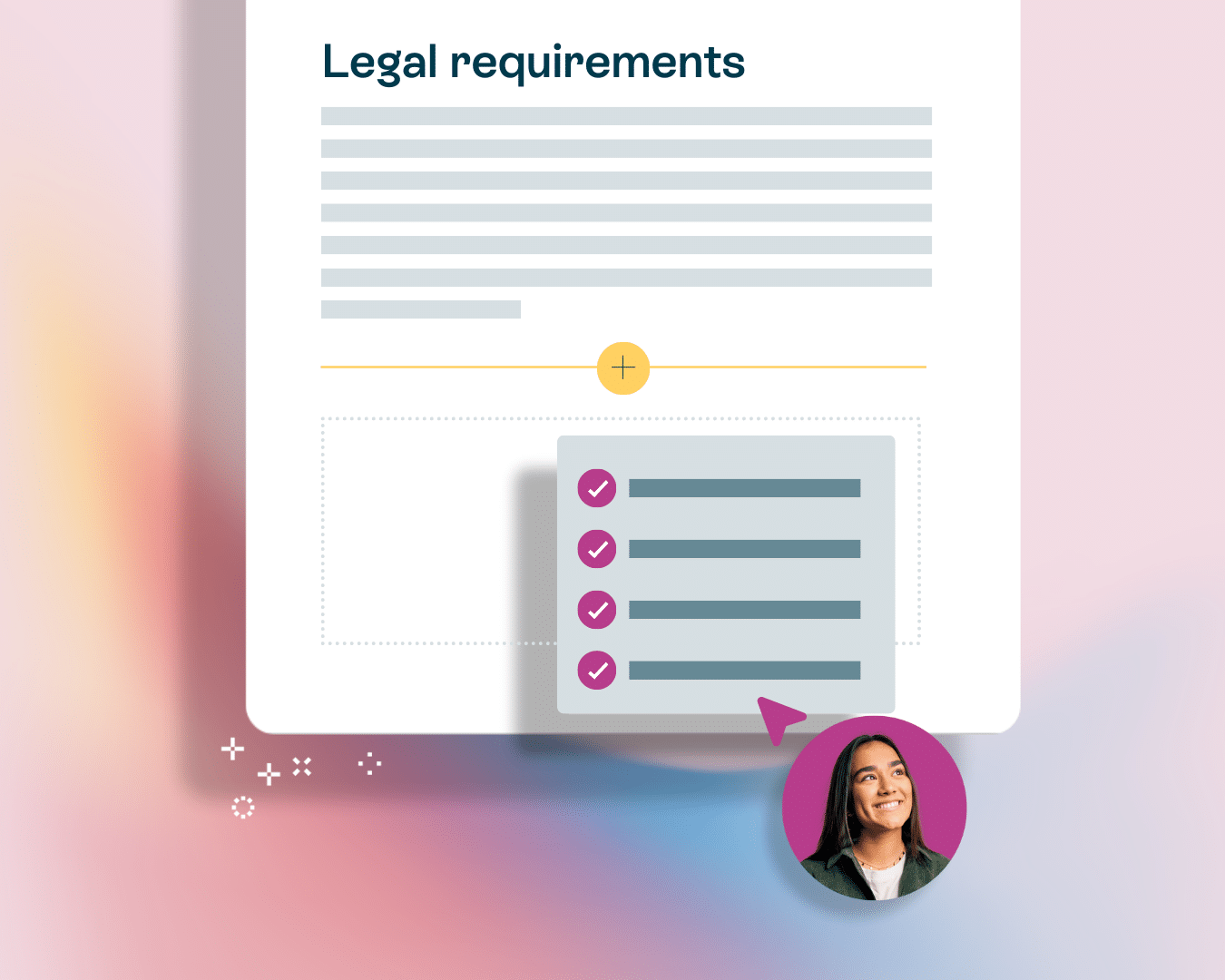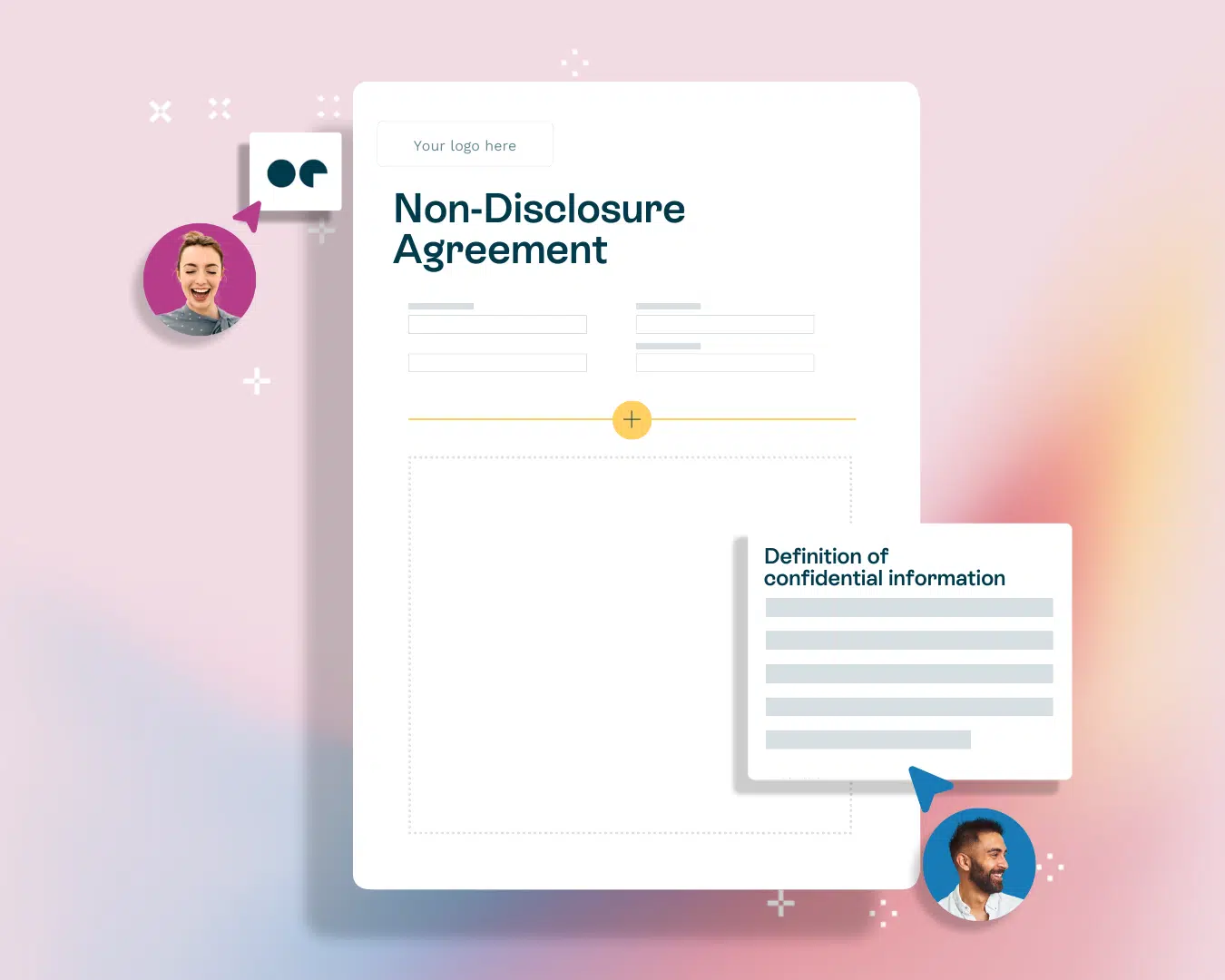Legal agreements are an essential part of conducting business in today’s world. They help protect sensitive information, maintain trust, and ensure that parties involved in a business relationship are bound by specific terms and conditions. Two commonly used legal agreements are Non-Disclosure Agreements (NDAs) and Confidentiality Agreements.
While they may seem similar, there are important distinctions between the two. In this article, we’ll explore the differences, similarities, and real-life applications of NDAs and Confidentiality Agreements to help you understand which one is right for your business needs.
A quick guide to the basics of legal agreements
Legal agreements play a vital role in various aspects of our lives, from business transactions to personal relationships. They serve as a foundation for establishing trust, ensuring clarity, and protecting the interests of all parties involved. Let’s delve deeper into the world of legal agreements and explore their significance in different contexts.
Read also: What are digital contracts?

What is a legal agreement?
A legal agreement, also known as a contract, is a documented agreement that outlines the terms and conditions agreed upon by two or more parties. These agreements can take various forms, such as written contracts, verbal agreements, or even electronic documents. Regardless of the format, legal agreements serve as a binding contract that defines the rights, responsibilities, obligations, and limitations of each party involved.
Legal agreements are designed to provide clarity and reduce uncertainty in any given situation. By clearly stating the expectations and requirements of each party, these agreements help establish a solid foundation for a mutually beneficial relationship. Moreover, legal agreements serve as a reference point for resolving any potential disputes that may arise during the course of the agreement.
Importance of legal agreements in business
In the world of business, legal agreements are of utmost importance. They serve as the backbone of any business transaction, ensuring that all parties involved are protected and their interests are safeguarded. Let’s explore some key reasons why legal agreements are crucial in a business context.
1. Clarity and consistency: Legal agreements provide a clear and consistent framework for conducting business activities. By clearly defining the terms and conditions, these agreements help prevent misunderstandings and ensure that all parties are on the same page. This clarity is especially crucial in complex business transactions where multiple parties are involved.
2. Risk management: Legal agreements help manage risks by clearly outlining the rights and responsibilities of each party. They address potential risks and liabilities, ensuring that all parties are aware of the potential consequences. By doing so, legal agreements help mitigate the likelihood of disputes and minimise financial and reputational damage.
3. Confidentiality and protection of intellectual property: In today’s highly competitive business environment, protecting sensitive information and intellectual property is paramount. Legal agreements, such as non-disclosure agreements and intellectual property agreements, help maintain confidentiality and prevent unauthorised use or disclosure of valuable assets.
4. Dispute resolution: Despite the best efforts, disputes may still arise in business relationships. Legal agreements serve as a reference point for resolving such disputes. They provide a clear framework for dispute resolution, including methods such as mediation, arbitration, or litigation. Having a well-drafted legal agreement in place can significantly expedite the resolution process and minimise the impact on the parties involved.
5. Compliance with legal requirements: Legal agreements ensure compliance with applicable laws and regulations. They help businesses navigate legal complexities and ensure that their operations are conducted within the boundaries of the law. By incorporating legal requirements into the agreement, businesses can avoid potential legal pitfalls and protect themselves from unnecessary legal consequences.
Legal agreements are an essential aspect of our legal and business landscape. They provide structure, clarity, and protection to all parties involved, ensuring that relationships are built on a solid foundation of trust and understanding. Whether in business or personal matters, legal agreements play a crucial role in establishing and maintaining successful partnerships.
Read also: Save time with these free business template from Oneflow

Defining non-disclosure agreement (NDAs)
Purpose of an NDAs
A Non-Disclosure Agreement (NDA), also known as a confidentiality agreement, is a legal contract that restricts the disclosure of certain information to third parties. The primary purpose of an NDA is to protect sensitive and confidential information from being shared without proper authorisation. NDAs are commonly used when two parties are considering entering into a business relationship or when sharing proprietary information with potential investors, employees, or partners.
Key elements of an NDA
An NDA typically includes the following key elements:
- Identification of the parties involved: The agreement must clearly state the names and contact details of the parties.
- Definition of confidential information: The NDA should specify what constitutes confidential information, ensuring that it covers the necessary details.
- Duration of the agreement: The agreement should define the duration for which the confidentiality obligations will remain in effect.
- Obligations of the parties: The NDA outlines the responsibilities and duties of each party in protecting and handling the confidential information.
- Exceptions to confidentiality: The NDA may specify certain circumstances where the confidentiality obligations do not apply.
- Consequences of breach: The agreement should outline the remedies and legal actions that can be taken in case of a breach of confidentiality.
Read also: Terminating a contract: What you need to know

What is a confidentiality agreement?
Purpose of a confidentiality agreement
A Confidentiality Agreement, similar to an NDA, is a legal document that protects sensitive information. It establishes the expectations and requirements for maintaining confidentiality during specific business activities. Unlike an NDA, which is often used in initial discussions, a Confidentiality Agreement is frequently employed when parties are already engaged in a business relationship, such as when sharing trade secrets, customer data, or financial records.
Key elements of a confidentiality agreement
A Confidentiality Agreement typically includes the following key elements:
- Identification of the parties involved: The agreement should clearly identify the individuals or entities entering into the agreement.
- Scope of confidentiality: The Confidentiality Agreement defines the specific information that needs to be protected.
- Duration of the agreement: This specifies the timeframe during which the parties are legally bound to maintain confidentiality.
- Non-compete clauses: In some cases, a Confidentiality Agreement may also include non-compete clauses to prevent one party from entering into a similar business or industry.
- Remedies for breach: The agreement outlines the legal options and remedies available if one party violates the confidentiality obligations.
Comparing NDAs and confidentiality agreements
Similarities between an NDA and a confidentiality agreement
While NDAs and Confidentiality Agreements serve the same purpose of protecting sensitive information, they share several similarities:
- Both agreements aim to maintain confidentiality and prevent unauthorised disclosure.
- They establish clear expectations and requirements for the parties involved.
- Both agreements can include provisions for legal remedies in case of breach.
Differences between an NDA and a confidentiality agreement
Though similar in purpose, there are several key differences between NDAs and Confidentiality Agreements:
- An NDA is generally used in pre-business relationship contexts, while a Confidentiality Agreement is employed during an established business relationship.
- NDAs are often broader in scope, covering potential business opportunities, inventions, and any information shared in initial discussions. In contrast, a Confidentiality Agreement is more focused, protecting specific types of information related to ongoing business activities.
- Confidentiality Agreements may include non-compete clauses that restrict one party’s ability to enter into a similar business or industry.
- NDAs tend to have more comprehensive provisions regarding the consequences of a breach of confidentiality.
Read also: Is a picture of a signed document legally binding?

Real-life applications and case studies
When to use an NDA
An NDA is typically used in various scenarios, including:
- When sharing proprietary information during negotiations and discussions with potential partners, investors, or employees.
- When disclosing trade secrets or know-how to a third party for evaluation or collaboration purposes.
- In situations where the nature of the information being shared carries significant commercial value and needs protection.
When to use a confidentiality agreement
Confidentiality Agreements are commonly utilised in the following circumstances:
- When parties involved in an ongoing business relationship need to share sensitive information, such as customer lists, financial data, or technical specifications.
- During mergers and acquisitions, where due diligence requires the exchange of confidential information between the involved parties.
- When employees or contractors have access to proprietary information that needs safeguarding.
By understanding the differences between NDAs and Confidentiality Agreements and their real-life applications, businesses can ensure that their sensitive information remains protected. Whether you choose an NDA or a Confidentiality Agreement, consulting an attorney experienced in contract law is always advisable to tailor the agreement to your specific needs.
Remember, legal agreements serve as the backbone of business relationships, providing assurance and fostering trust. So, take the necessary steps to safeguard your confidential information and protect your business interests.







